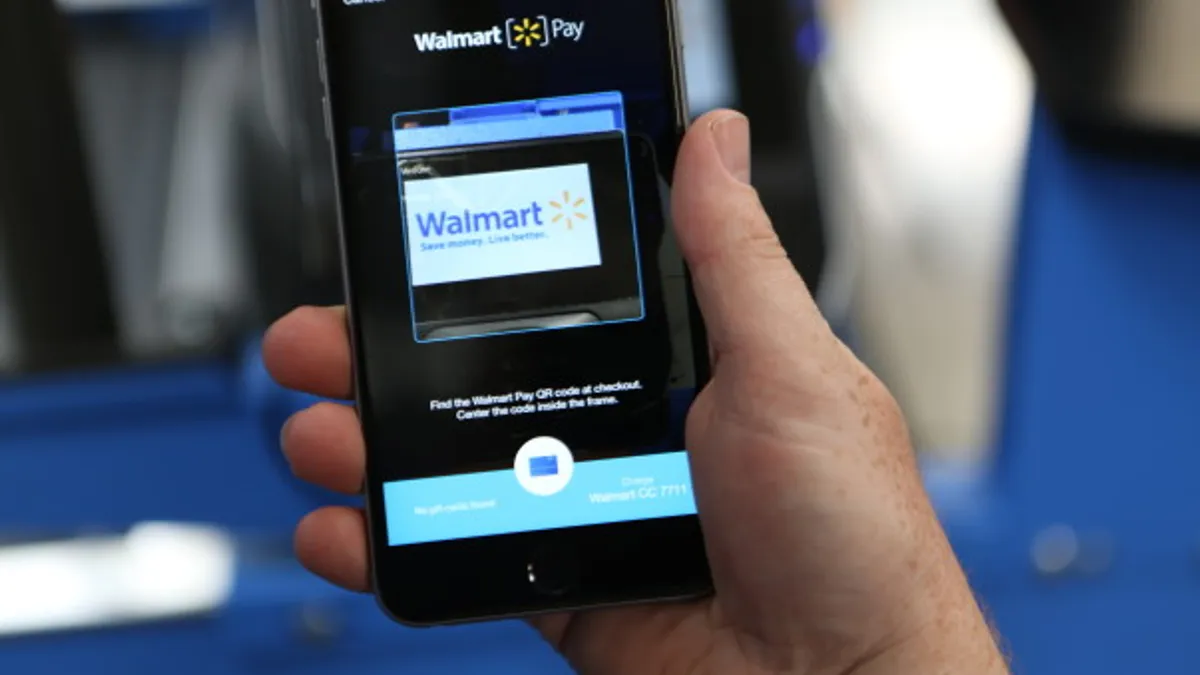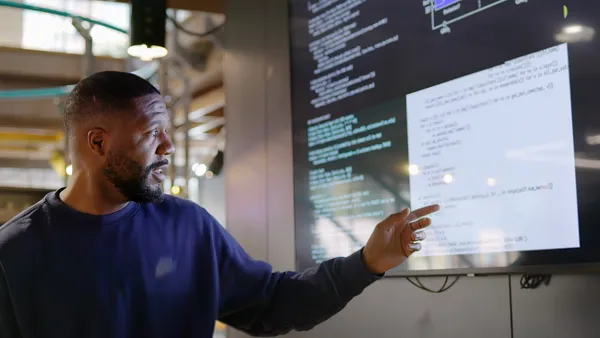Dive Brief:
- Walmart filed patents for a courier shopping system, which includes a blockchain-based vendor payment sharing system as well as customer interface, customer management and courier management systems. The applications, initially filed in October 2017 and published Thursday, were first spotted on the U.S. Patent and Trademark Office's database by CoinDesk.
- The parts of the courier shopping system will work together to help the retailer "monitor a person's behavior over time" so that "a general sense of that person's daily routine can be established" to "create a spectral profile for the monitored person." In the customer management system patents, virtual experts deployed through shopping mediums may use artificial intelligence to learn customer preferences, likes, dislikes and dietary restrictions, among other categories, to generate recommendations for shoppers.
- The vendor payment sharing system would manage data and payments for store products purchased and delivered by a courier. It would also divide a single payment between all vendors working together to fulfill the order — such as the courier, stores and delivery service. The system would "provide a system for customers to have the convenience of ordering online while still have the selectability of in store shopping," according to the application.
Dive Insight:
Walmart bounced between ascribing Newtonian and philosophical foundations to its customers' partialities and purchases, but the crux of the retailer's series of patents demonstrate an effort to tailor digital shopping experiences with relevant, individualized product and service recommendations.
Privacy was addressed across the five patents with the specification that "user's partiality vectors can be locally stored and utilized ... [to] better comport with a particular user's privacy concerns."
As the world becomes more connected — 50 billion Internet of Things devices by 2020, according to the patents — the number of sensors capable of picking up user preferences and partiality vectors is increasing dramatically. Walmart used the example of a smartphone as a device generating data on consumer preferences but said that "any of a wide variety of Internet of Things devices/components could be readily configured in the same regards," such as a networked refrigerator.
Walmart is among the leaders in retail personalization, nabbing the No. 3 spot in a Sailthru index last year. Customers want personalization but don't want to set up profiles on e-commerce sites, leaving retailers walking a tight rope to create shopper profiles behind the scenes without violating privacy concerns. And with GDPR around the corner requiring users' consent for a company to use their data, that tight rope is narrowing.













